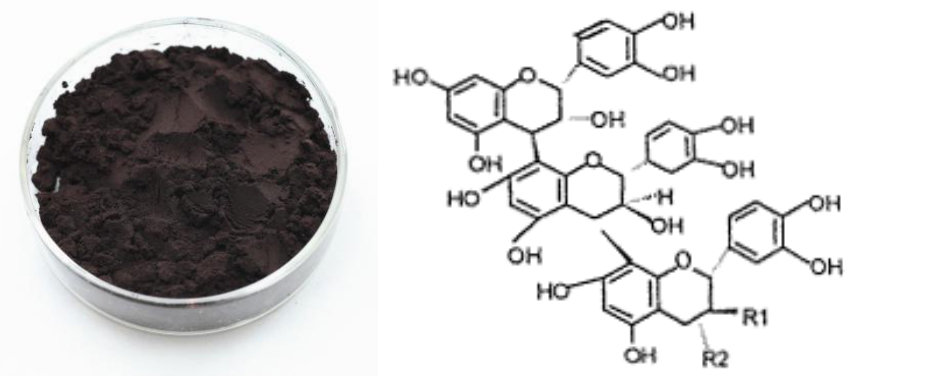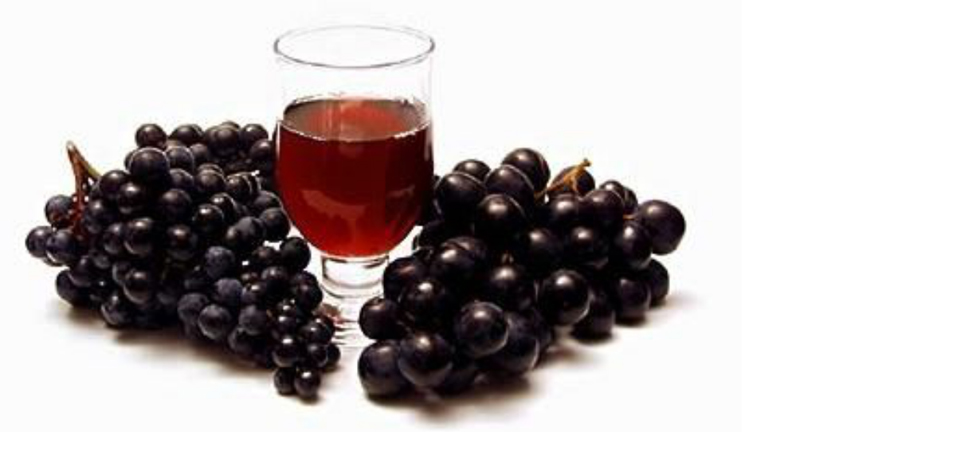Trending Products Grape Juice Extract Powder Supply to Hanover
Trending Products Grape Juice Extract Powder Supply to Hanover Detail:
[Latin Name] Vitis vinifera L..
[Plant Source]from China
[Appearance]Dark reddish brown to purple powder
Plant Part Used:Fruit
[Particle size] 80 Mesh
[Loss on drying] ≤8.0%
[Heavy Metal] ≤10PPM
[Pesticide residue] EC396-2005, USP 34, EP 8.0, FDA
[Shelf life] 24 Months
[Package] Packed in paper-drums and two plastic-bags inside.
[Net weight] 25kgs/drum
[Introduction:]
Grape Juice concentrate extract powder is another powerful antioxidant. It strengthens and protects living tissue and aids in circulation. It is a super antioxidant, 20-50 times more powerful than vitamin C, E and beta-carotene. As we age, our bodies produce less antioxidant to combat the aging process and therefore need to supplement with these. Grape seed extract contain natural bioflavonoids called proanthocyanidins which help support the health of the cell membranes from free radical damage. It also provides cardiovascular protection by preventing oxidation of lipoproteins, making them less likely to stick to blood vessel walls.
[Main Function]
1) Flavors in seasoning packets for raspberry juice powder keep the original flavors
2) Colors in ice cream, cakes for beautiful brown color of raspberry juice powder
3) Also can be applied in drink mix, infant food, dairy product, bakery, candy and others
[Application ]
• Add to water and ice for a crisp, refreshing vitamin water
• Add to electrolyte water for an all-natural sports drink
• Prepare a “simple syrup” by adding to an all-natural sweetener and water, use it to flavor mixed drinks or make shaved ice creations
• Add powder to baked goods such as cakes, cupcakes, muffins and cookies
• Add to vegetable juices
• Stir into plain yogurt
• Stir into ice cream
Product detail pictures:

Related Product Guide:
We offer wonderful energy in high-quality and improvement,merchandising,product sales and marketing and advertising and procedure for Trending Products Grape Juice Extract Powder Supply to Hanover , The product will supply to all over the world, such as: Bangalore, Indonesia, India, During in 11 years,We have participated in more than 20 exhibitions,obtains the highest praise from each customer. Our company always aim to provide the customer best products with lowest price. We are making great efforts to achieve this win-win situation and sincerely welcome you to join us. Join us, show your beauty. We will always be your first choice. Trust us, you will never lose heart.
View full lesson: https://ed.ted.com/lessons/how-do-carbohydrates-impact-your-health-richard-j-wood
The things we eat and drink on a daily basis can impact our health in big ways. Too many carbohydrates, for instance, can lead to insulin resistance, which is a major contributor to cardiovascular disease and Type 2 Diabetes. But what are carbs, exactly? And what do they do to our bodies? Richard J. Wood explains.
Lesson by Richard J. Wood, animation by Qa’ed Mai.
I bought this Giovanni Wellness System Step 2 Conditioner with Chinese Botanicals From Vitacost.com and here is the link to the product
https://www.vitacost.com/giovanni-wellness-system-step-2-conditioner-with-chinese-botanicals
Giovanni Wellness System Step 2 Conditioner with Chinese Botanicals Description
Eco Chic Technology™
For All Hair Types
Scalp & Follicle-Focused Holistic Formulation
Soothes Dry & Itchy Scalp
Strengthens Hair Roots
Deep Nourishment for Healthy Hair
Mild Formula Will Not Strip or Change Hair Color
Where traditional Chinese botanicals and modern sciences meet, creating a wellness system of holistic hair & scalp care
Step 2
botanicals & wellness benefits for hair
An Mole – antioxidant & keeps hair elastic
Hei Zhi Ma – soothes a dry itchy scalp
Jia Ma Chi Xian – strengthens hair roots
Mo Han Lian – strengthen & helps keep color
Wu Huan Zi – restores lustre
+ Conditioner Wellness enhanced with
Proanthocyanidins – improves hair texture
Rehmannia Radix – calms and soothes the scalp
This Wellness Conditioner combines traditional Chinese botanicals with the highest quality Western ingredients that energize your hair and scalp – to soothe a dry itchy scalp, strengthen roots and keep hair’s elasticity.
With powerful bioflavonoid Proanthocyanidins from grape seed and Rehmannia Radix in a paraben-free formulation, this Wellness Conditioner delivers an effective supplement to calm and soothe the scalp, improve hair texture and deeply nourish hair follicles – thus promoting healthy hair growth.
Free Of
Paraben, animal by-products and animal cruelty.
Complete hair wellness by massaging conditioner into wet hair and scalp. Leave-on for 3-5 minutes to achieve maximum efficacy from the botanicals and supplementary ingredients.
Ingredients: Aqua (purified water), *aloe barbadensis (aloe vera) leaf juice, *sesamum indicum (sesame) seed extract [hei chi ma], emblica officinalis fruit extract [an mole], *eclipta prostrata extract [mo han lian], sapindus mukorossi fruit extract [ wu huan zi], *bacopa moniero extract [jia ma chi xian], rehmannia glutinosa (Chinese foxglove) root extract, vitis vinifera (grape) seed extract [proanthocyanidins], serenoa serrulata (saw palmetto) fruit extract, chamomilla recutita (matricaria) flower extract, urtica dioica (nettle) extract, camellia sinensis (green tea) leaf extract, mentha piperita (peppermint) oil, helianthus annuus (sunflower) seed oil, stearalkonium chloride, behentrimonium chloride, hydroxypropyl guar, cetyl alcohol, glycerin, cetearyl alcohol, panthenol, menthol, menthyl lactate, potassium sorbate, phenoxyethanol.
*Certified Organic.
Music:
Balearics – By Yuri Sazonoff
The goods are very perfect and the company sales manager is warmful, we will come to this company to purchase next time.






